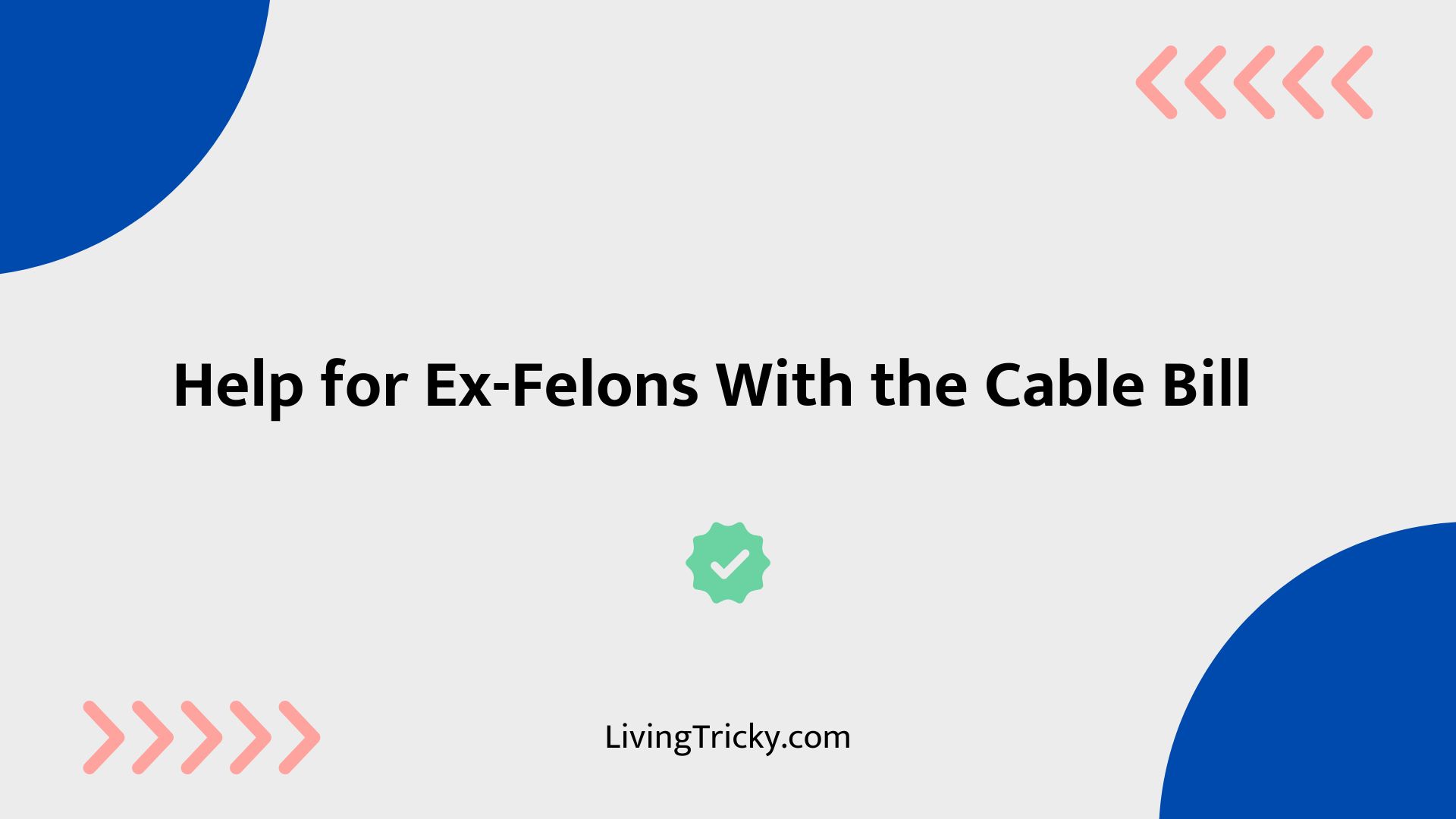You might think there’s direct financial help specifically for ex-felons struggling to pay cable bills, but that’s rarely the case. Instead, assistance often comes through broader utility support programs, like the federal Lifeline program, which offers discounts on phone and internet services to low-income households.
Understanding how these programs work and the role of community resources is key to steering through the challenges ex-felons face with discretionary expenses such as cable.

Key Takeaways
- Ex-felons with low income may qualify for the Lifeline program, which offers monthly discounts on phone, internet, or bundled services to reduce cable bill costs.
- Some nonprofit organizations and community programs provide financial assistance or discounted cable and utility services for ex-felons facing financial hardship.
- Dialing 211 connects ex-felons to local agencies that offer emergency funds or payment support for utility and cable bills.
- Reintegration and employment support programs improve financial stability, indirectly helping ex-felons manage cable expenses more reliably.
- Budgeting workshops and financial literacy education from community and government initiatives help ex-felons effectively manage cable and utility bill payments.
Financial Assistance Programs for Utility Bills
Although re-entry can be challenging, many utility companies offer financial assistance programs aimed at helping low-income individuals, including felons, pay their cable and other utility bills.
You can also turn to local nonprofit organizations and community action agencies that provide emergency funds specifically for utility costs. Additionally, states often operate government led programs such as LIHEAP, which can help cover utility expenses and provide relief during difficult times.
Some cable companies also offer budget billing plans, allowing predictable monthly payments to ease financial strain. Beyond utilities, many programs connect individuals to housing aid resources, ensuring stability in both shelter and essential services.
Finally, dialing 211 connects you to local agencies offering financial help for utilities, housing, and more, making sure you access the support you need for a smoother re-entry.
Challenges Faced by Ex-Felons in Managing Cable Expenses
Because ex-felons frequently face financial instability due to limited job prospects, managing monthly cable expenses becomes difficult.
Your criminal record can lower your credit score, making affordable cable plans harder to secure and costlier to maintain. You likely prioritize essentials like housing and food over discretionary bills, causing interruptions in cable service.
While specific financial help for cable bills is rare, some utility assistance programs exist. Community resources that support employment can indirectly ease your cable burden by helping you gain stable income.
Seeking Help for Ex-Felons through available financial help programs can improve your situation.
Community and Government Support Initiatives
Community and government support initiatives play an essential role in helping ex-felons manage cable and other utility expenses by providing financial aid and reducing service costs.
Community organizations often offer financial assistance programs that help you pay cable bills, ensuring access to crucial communication and entertainment. Government programs may provide grants or subsidies targeting low-income individuals, including ex-felons, to cover utility expenses.
Additionally, nonprofits collaborate with service providers to offer reduced-rate or free cable services as part of reintegration support. Community workshops also help you learn budgeting skills for managing cable bills effectively.
Education and Resources to Improve Financial Stability
Improving your financial stability after incarceration often starts with gaining practical financial education and accessing targeted resources.
Building your financial literacy empowers you to manage household expenses like cable bills more effectively through budgeting and informed decision-making.
Participating in employment support programs designed specifically for ex-felons helps improve your job prospects, increasing your income capacity.
Community organizations and government initiatives offer assistance with utility bills and affordable internet access, which are crucial for job searching and communication.
Understanding available grants and aid programs, such as Lifeline, can reduce your costs and help you maintain essential services during reintegration.
Role of Reintegration Programs in Reducing Utility Payment Burdens
While reintegration programs focus heavily on employment and skill-building, they also play a critical role in easing the burden of utility payments such as cable bills by offering financial education and connecting you to assistance programs.
These programs help you manage expenses through budgeting workshops and provide direct financial aid to cover initial utility costs.
By securing stable employment and access to social services, they reduce your financial strain.
This support not only helps you handle bills responsibly but also fosters community ties, giving you a second chance and reducing recidivism through greater financial stability.
Frequently Asked Questions
What Is a Hardship Grant for a Felon?
A hardship grant for a felon is financial assistance designed to help you cover essential expenses during tough times by using available felon resources. This hardship assistance supports your reintegration by easing financial burdens linked to your criminal record.
Can a Felon Apply for a Grant?
You can apply for felon grants because your past conviction doesn’t automatically exclude you from many funding options, including federal, state, and nonprofit programs designed to help ex-felons start businesses or reenter society—like a key unfastening opportunity.
What Is the Texas Program for Ex-Felonies?
The Texas program for ex-felonies offers you Texas resources including job training, employment support, financial aid for basic expenses, and education like the Drug Offender Education course to help felon assistance and reintegration. Community partnerships further provide housing and federal grant support.
How Much Does Lifeline Pay for Internet?
Lifeline benefits provide up to $9.25 per month discount for internet services to help you with internet affordability. In tribal areas, this discount can increase to $34.25 per month on broadband services.
Conclusion
Managing cable bills after incarceration can feel like climbing a steep hill, but programs like Lifeline offer discounts to ease the burden on your phone or internet services. While direct help for cable bills is limited, utility assistance programs and nonprofits provide resources and financial education to improve your budgeting skills. Reintegration and employment programs further stabilize your income, helping to cover discretionary costs and maintain essential connectivity.